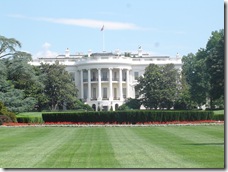Obama, Rudd, Politics and the Web
While some may want to claim that the Internet 'won' Barrack Obama the Presidency of the United States last November, I am somewhat more circumspect in ascribing to it that much significance.
Information technologies are enabling tools.In the case of candidate Obama the Web enabled him and his campaign team to engage, enthuse and embrace an electorate determined for change, hungry for a new generation of ideas and open to the forceful aspiration put to them by a talented, charismatic and non-threatening leader.
They offered America a 'way' of government in the Lincoln tradition - of the people, by the people and for the people - to be delivered in some measure through the medium of the Internet.
Now after just more than 100 days in the White House comes the news that the administration has launched its Facebook, Twitter and MySpace pages. On the White House blog under a posting entitled "WhiteHouse 2.0", the Administration has announced steps to expand how it is communicating with the public.
You can find out more about what this move might mean to public participation in government on Joe Trippi's blog and see why techPresident views this move as "a big step towards recreating the ubiquitous Internet presence" of Barrack Obama.
The 2007 Federal election demonstrated to many what the future of Australia's political campaigns might look like. The rawness of Labor's Internet campaign deserved the credit it received - particularly when contrasted to the inadequate effort of their opponents.
Fast forward just 18 months and Australia's political parties are both acutely aware of the potential benefits of engaging citizens through web technologies. At the Microsoft Politics and Technology Forum earlier this year Opposition Leader Malcolm Turnbull and Finance Minister Lindsay Tanner both clearly articulated the challenges of engagement with citizens through Web 2.0 technologies.
Across the globe the Web is being embraced as a tool to engage people in their democracies. Beyond a conversation or consultation, the Web offers the realistic prospect that government can again work with and for citizens, not the other way around.
In Australia we must guard against the potential to be wonderstruck by multi-media conglomerations and tech-heavy applications that are little more than a passing picture show designed to entertain. Cheap but colourful impersonations of the work of others will both demean our national aspiration and underestimate the capacity of the Australian software industry.
It is to be hoped that before the next 'Kevin 07' site is launched the Government will have embraced the importance and significance of the Web as a tool for governing and will have demonstrated a commitment to bi-partisanship in an open and transparent process of governing that utilises all the potential of the human resources of this nation.
What comes next to the Web will tell us a lot about the type of democracy Australia really has and what of its future. If the tools of the Web are used as no more than extensions of current mediums of communication then the Web will be a wasted platform. If on the other hand the Web is used to connect, collaborate and engage all Australians in the processes of government then our only deception will be if we fail to see how technology enables us to change our lives, the nation and the world.
Simon Edwards, Head of Government Affairs
